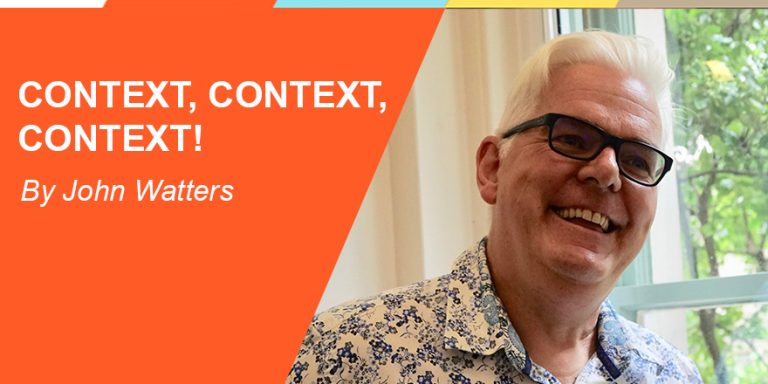Making Sense of Complexity: the Personal and the Systemic
Many of us yearn for simple principles to guide our work and life in a complex world. At the heart of this conundrum is an understanding of the relationship between the personal and the systemic. If some of us have an intuitive feel for the relationship between the two, we often find it hard to explain it to others. The urgency of our organisational, societal and planetary challenges requires us to bridge this divide. Either lens on its own is inadequate. I’ve been party to conversations which seem to presuppose that the locus of transformation is individual leaders, as if they exist in isolation, outside of any wider context. Similarly, the systemic approach can often be impoverished by an inadequate understanding of adult development and leave gaps in how we translate systemic insights into shifts in individual and collective behaviour.
All metaphors are incomplete but the metaphor of organistions as living systems, developed by Meg Wheatley and Fritjov Capra, illuminates different ways of thinking and acting. By contrast, when you look closely at organisational thinking much of it is still located in ‘the world and organisation as machine’ metaphor. I’ve just responded to a tender for organisational development work where the working assumption seems to be that each leader is a separate unit, capable of redesign and complete transformation, largely independent of the wider culture of the organisation. Much leadership development is still premised on questionable ‘machine-metaphor’ assumptions:
- Breaking the system into its component parts (individuals and teams).
- Studying each part in isolation.
- Assembling an understanding of the whole as if the collective level is simply an aggregate of the parts that interact weakly and in a linear manner.
For example, you can’t adequately think of shifting the behaviour of the Middle part of an organisational system without understanding the Middle group’s relations with each other, with Tops, with Bottoms and with Customers. This wider constellation of relationships should be the locus of any action inquiry seeking to evolve the system. Focusing on the personal development of individual Middles and expecting a shift in the collective behaviour of Middles is a common but often fruitless endeavour, if you want to evolve whole systems, as Barry Oshry has pointed out.
The self (the personal/individual) and the wider systems of which we are members are not separate. As human beings we are constituted of the same elements that make up the universe.
“The nitrogen in our DNA, the calcium in our teeth, the iron in our blood, the carbon in our apple pies were made in the interiors of collapsing stars. We are made of starstuff.”
Carl Sagan, Cosmos
The world of quantum physics reveals that the most basic elements of what constitutes us as human beings are not the solid building blocks of atoms, but pure energy, patterns of probability, waves and particles. At the collective level (which includes organisations) my view is that there is no fixed, pre-existing social reality that exists outside of our personal and collective participation in it. This is paradoxical because certain levels of reality appear solid: our bodies seem solid enough and yet we are in constant cycles of dying and renewal, a complex set of processes in motion. Similarly, organisational culture has tangible manifestations: values statements, organisation design charts, procedures and policies. Organisational culture also has a much subtler, less tangible but no less powerful energy field: the emotional history of the organisation carried in story, ritual and myth; the signals and gestures, mostly out of conscious awareness, that encourage and constrain individual behaviour; the vitality (or otherwise) that brings collective purpose to life.
So what?
Update your maps. Many maps in use in organisations around individual and collective change are woefully inaccurate. The wider field of leadership and organisational development (OD) has much unlearning and letting go to do. I’m in the process of simplifying my work which is both painful and liberating. If you read Marvin Weisbord’s latest book, Productive Workplaces Revisited: Dignity, Meaning and Community in the 21st Century, reflections on 50 years as a leader in the OD field, he set out ten myths of organisational change which he no longer believes. These myths (changes are sustainable, diagnosis solves the problem, training will fix it…) are unfortunately the common fare of many proposals from business schools and consultancies.
Embrace paradox and uncertainty and remember the map is not the territory. Maps are helpful in pointing to the territory, just as a menu points to the food, but as Gregory Bateson pointed out it’s a mistake to eat the menu. In the same way our plans and maps are useful but provisional. By all means take maps and make good plans, but pay attention to the territory which is in front of you. Solutions to complex challenges emerge over time through the rich interaction between different parts of the system. We have to be willing to embrace the unknown and this includes ambiguity, vulnerability and uncertainty. As the Islamic poet Rumi said: “As you start on the Way, the Way appears”.
Find a community of practice and deepen your understanding of the interplay between the personal and systemic. In a previous blog post on Barry Oshry’s website I gave ten pointers (or cairns) to which we should pay attention. Revisit them. Try them out and see if they make a difference. Reflect on and learn from your experiments! In previous times we perhaps had a better sense of the time needed to become a master craftsperson (or master practitioner) but our desire now is often for fast tracks and shortcuts. Drive thru competence which we pick up on a one day workshop is an illusion – the workshop is a first step but the journey requires time, application and learning.
Happy travels!
If you would like to develop your ability to coach for change more effectively at the individual, team and wider system level then join me, Professor Peter Hawkins and faculty from AoEC for the Team Coaching for Systemic Change programme in London on 26/27 June, 2012
Reposted from John Watters’ Blog found here.



